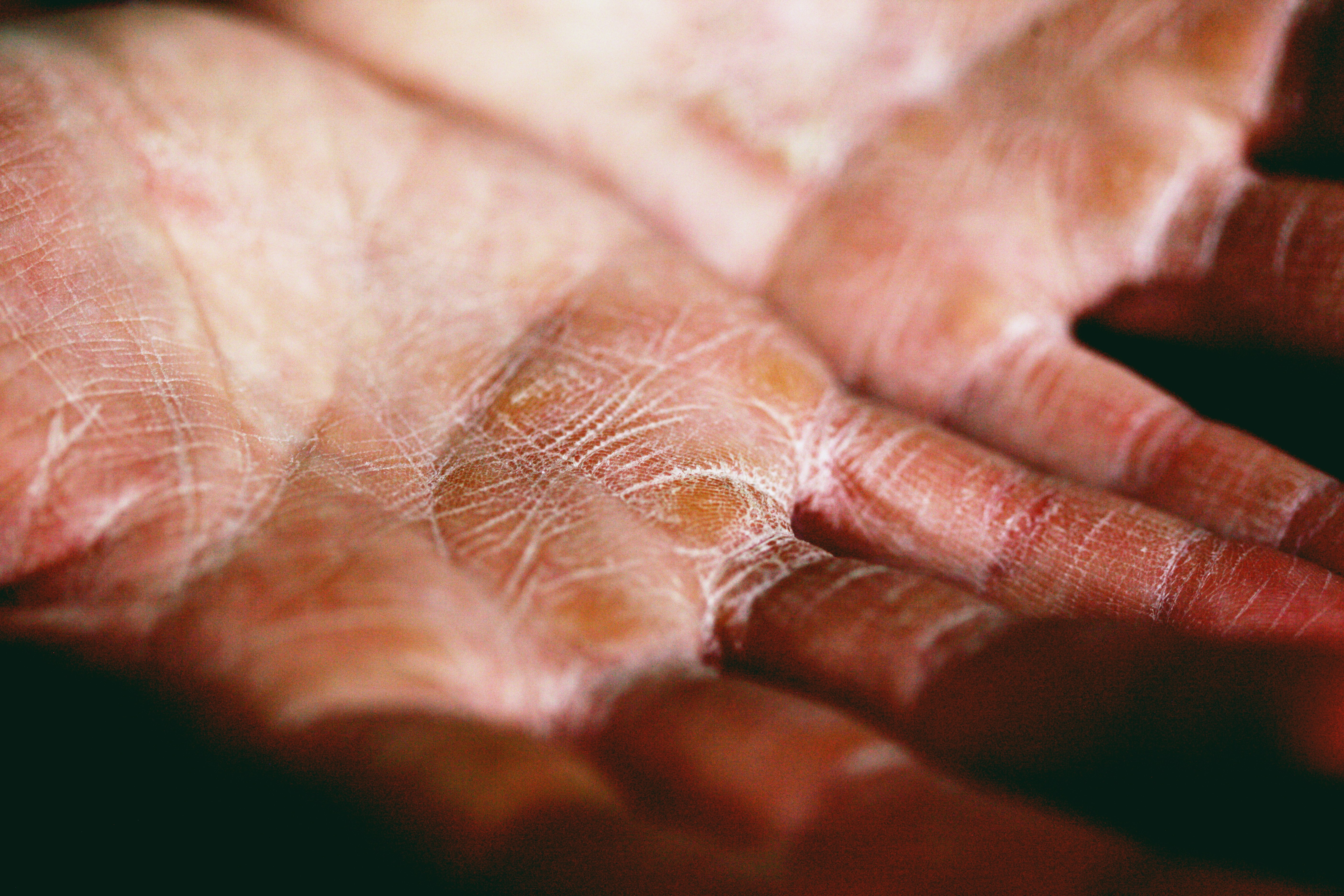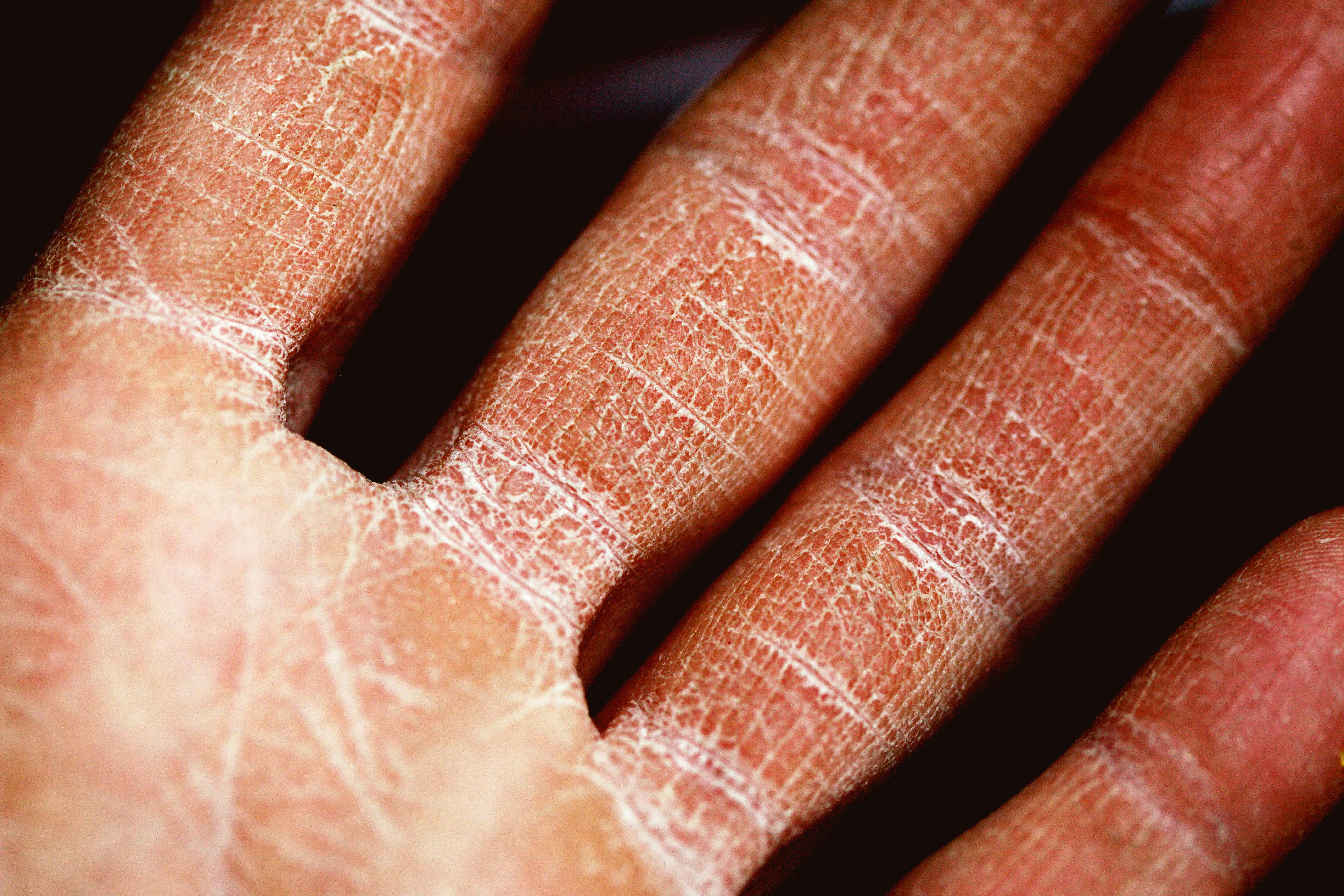Can Diet Cause Eczema
You may be surprised to learn that the food you consume could potentially be linked to the development or worsening of eczema. In this article, we will explore the fascinating connection between diet and eczema, providing you with valuable insights and information that may help you live a healthier life. Whether you have been struggling with eczema or are simply curious about its potential causes, join us as we delve into this intriguing topic and uncover the role that diet plays in this common skin condition.
Understanding Eczema
What is eczema?
Eczema is a chronic skin condition characterized by inflammation, itching, and redness. It affects people of all ages, but it is especially common in children. Eczema can be triggered by various factors, including genetics, environmental factors, and an overactive immune system. It often presents as dry, itchy patches on the skin that can become irritated and inflamed. Although there is no cure for eczema, there are ways to manage and reduce its symptoms.
Types of eczema
There are several types of eczema, each with its own unique characteristics. The most common types of eczema are atopic dermatitis, contact dermatitis, and dyshidrotic eczema.
Atopic dermatitis is the most prevalent form and is often associated with allergies and asthma. It typically appears in childhood and can persist into adulthood. Contact dermatitis occurs when the skin comes into contact with irritants or allergens, such as certain chemicals or metals, resulting in a localized reaction. Dyshidrotic eczema typically affects the hands and feet and is characterized by small, itchy blisters.
Causes of eczema
The exact cause of eczema is still not fully understood, but it is believed to be a combination of genetic and environmental factors. People with a family history of eczema, asthma, or allergies are more prone to developing the condition. Additionally, certain environmental factors such as dry climates, exposure to irritants, and stress can trigger or exacerbate eczema symptoms.
Link Between Diet and Eczema
Importance of diet in managing eczema
Diet plays a significant role in managing eczema symptoms, as certain foods can trigger flare-ups or worsen existing symptoms. By identifying and eliminating these trigger foods from your diet, you may experience a reduction in itchiness, inflammation, and overall severity of eczema. It is important to note that diet alone may not completely cure eczema, but it can be a valuable component in an overall treatment plan.
Research on the connection between diet and eczema
Numerous studies have investigated the link between diet and eczema, with some suggesting that certain foods can exacerbate symptoms. However, the relationship between diet and eczema is complex and can vary from person to person. While there is no one-size-fits-all solution, many individuals with eczema have found relief by making targeted dietary changes.
Mechanism behind diet-induced eczema flare-ups
The exact mechanism by which diet triggers or worsens eczema is not fully understood. However, it is believed that specific foods can cause immune system reactions and inflammation in susceptible individuals, leading to the onset or exacerbation of eczema symptoms. Additionally, certain foods may contain compounds or allergens that directly irritate the skin or disrupt the gut microbiome, further contributing to eczema flare-ups.
Common Trigger Foods for Eczema
When it comes to eczema, certain foods have been identified as common triggers for a significant portion of individuals. These trigger foods can vary from person to person, but some of the most commonly reported ones include:
Cow’s milk
Cow’s milk is a common allergen that can trigger eczema flare-ups, especially in infants and young children. The proteins in cow’s milk, such as casein and whey, can cause immune reactions and worsen eczema symptoms. It is important to note that lactose intolerance is different from a milk allergy, and lactose intolerance does not typically cause eczema.
Eggs
Eggs, particularly the protein found in egg whites, can be a trigger for eczema in some individuals. Like cow’s milk, eggs contain proteins that can provoke immune reactions and lead to eczema flare-ups. In such cases, eliminating eggs or egg products from the diet may help alleviate symptoms.
Gluten
Gluten is a protein component found in wheat and other grains, and it is a known trigger for eczema in some individuals. People with celiac disease, a condition characterized by gluten intolerance, may experience eczema symptoms as a result of ingesting gluten. It is important to note that gluten sensitivity and celiac disease are not the same, and gluten sensitivity may manifest differently in individuals.
Nuts and seeds
Certain nuts and seeds, such as peanuts, walnuts, and sesame seeds, have been reported as trigger foods for eczema. These foods contain specific proteins that can elicit allergic reactions and exacerbate eczema symptoms. However, it is important to note that not all individuals with eczema are sensitive to nuts and seeds, and these foods can still be part of a healthy diet for those who can tolerate them.
Soy products
Soy is another common trigger for individuals with eczema, particularly soy protein. Like other trigger foods, soy can cause immune reactions that result in eczema flare-ups. Avoiding soy-based products and replacing them with alternative sources of protein can help manage eczema symptoms for those who are sensitive to soy.
Citrus fruits
Citrus fruits, such as oranges, lemons, and grapefruits, are known to be acidic, which can irritate the skin and potentially trigger eczema flare-ups. While not everyone with eczema reacts to citrus fruits, it may be worth avoiding them if you notice a correlation between citrus consumption and worsening of symptoms.
Processed and fried foods
Processed and fried foods high in unhealthy fats, refined carbohydrates, and additives have been linked to increased inflammation in the body. This inflammation can worsen eczema symptoms and disrupt overall skin health. Opting for whole, unprocessed foods instead can support better skin health and potentially reduce eczema severity.
Food additives and preservatives
Food additives and preservatives, such as artificial colorings, flavorings, and stabilizers, have been reported as triggers for some individuals with eczema. These additives can cause immune reactions and increase inflammation, leading to eczema flare-ups. Reading ingredient labels and opting for natural, minimally processed foods can help minimize exposure to these additives.
Sugar and sweeteners
Excessive sugar consumption has been linked to increased inflammation and compromised immune function. For some individuals with eczema, high-sugar diets can exacerbate symptoms and lead to more frequent flare-ups. Reducing consumption of refined sugars and opting for healthier alternatives, such as natural sweeteners or fresh fruits, can be beneficial for managing eczema.
Alcohol and caffeine
Alcohol and caffeine have both been associated with increased inflammation in the body. For some individuals with eczema, consuming alcohol or significant amounts of caffeine can trigger or worsen eczema symptoms. Reducing or eliminating alcohol and caffeine intake may help alleviate eczema flare-ups and promote overall skin health.
Elimination Diets for Eczema
Explanation of elimination diets
An elimination diet involves removing potential trigger foods from your diet for a period of time to identify which foods may be exacerbating your eczema symptoms. After a period of strict avoidance, you gradually reintroduce one food at a time while monitoring for any adverse reactions. This process helps you pinpoint specific trigger foods that may be causing your eczema flare-ups.
Benefits and challenges of elimination diets
The benefits of elimination diets for eczema include the ability to identify trigger foods, reduce symptoms, and gain better control over your condition. By eliminating potential triggers, you can potentially alleviate inflammation and itching, leading to improved quality of life. However, elimination diets can be challenging, as they require careful planning, label reading, and strict adherence. It is recommended to work with a healthcare professional or registered dietitian to ensure a balanced and nutritionally adequate diet during this process.
Steps to follow when trying an elimination diet
When embarking on an elimination diet for eczema, it is important to follow a systematic approach:
- Identify potential trigger foods: Review common trigger foods for eczema and discuss with your healthcare professional or dietitian to create a list of potential foods to eliminate.
- Eliminate trigger foods: Remove all potential trigger foods from your diet for a predetermined period of time (usually 2-4 weeks).
- Monitor symptoms: During the elimination phase, pay close attention to any changes in your eczema symptoms. Keep a diary or journal to track your progress.
- Reintroduce one food at a time: After the elimination period, slowly reintroduce one eliminated food at a time while closely monitoring your symptoms.
- Observe reactions: Note any changes in your eczema symptoms after reintroducing each food. If symptoms worsen or flare up, it may indicate a trigger food.
- Maintain a balanced diet: While eliminating trigger foods, it is essential to maintain a well-balanced diet that provides the necessary nutrients. Work with a healthcare professional or registered dietitian to ensure you are meeting your nutritional needs.
Common allergens to eliminate
When following an elimination diet for eczema, common allergens that are often eliminated include:
- Dairy products, including cow’s milk, cheese, and yogurt
- Eggs
- Gluten-containing foods, such as wheat, barley, and rye
- Soy and soy-based products
- Nuts and seeds
- Citrus fruits
- Shellfish
- Processed and fried foods
However, it is important to note that the specific allergens to eliminate may vary depending on your individual sensitivities and medical advice.
Working with a healthcare professional
Embarking on an elimination diet for eczema is best done under the guidance of a healthcare professional or registered dietitian. They can provide personalized advice, help you develop a suitable meal plan, ensure nutritional adequacy, and monitor your progress throughout the process. Working in partnership with a professional can maximize the effectiveness of the diet and help you achieve the best possible results.
Gut Health and Eczema
Role of the gut in eczema development
Emerging research suggests that gut health plays a pivotal role in eczema development and management. The gut, or gastrointestinal tract, is home to trillions of microorganisms, collectively known as the gut microbiome. These microorganisms contribute to various aspects of health, including immune function, digestion, and the maintenance of a healthy gut lining. Imbalances in the gut microbiome have been linked to numerous health conditions, including eczema.
Leaky gut syndrome and its impact on eczema
Leaky gut syndrome, or increased intestinal permeability, refers to a condition where the lining of the gut becomes compromised, allowing substances to leak into the bloodstream. This can trigger immune responses and inflammation, potentially worsening eczema symptoms. While more research is needed to fully understand the relationship between leaky gut and eczema, there is growing evidence to support its role in eczema development and management.
Foods that support gut health
Maintaining a healthy gut is crucial for overall health and can potentially benefit individuals with eczema. Including certain foods in your diet can support gut health and potentially reduce eczema symptoms:
- Fiber-rich foods: Fiber acts as a prebiotic, providing nourishment for beneficial gut bacteria. Include sources of dietary fiber such as fruits, vegetables, whole grains, legumes, and nuts.
- Fermented foods: Foods like yogurt, kefir, sauerkraut, kimchi, and kombucha contain live beneficial bacteria that can help promote a healthy gut microbiome.
- Polyphenol-rich foods: Polyphenols are compounds found in colorful fruits, vegetables, and herbs. They have been shown to have prebiotic effects, supporting the growth of beneficial gut bacteria.
- Omega-3 fatty acids: Found in fatty fish, flaxseeds, chia seeds, and walnuts, omega-3 fatty acids have anti-inflammatory properties and may help support a healthy gut environment.
Probiotics and their potential role in managing eczema
Probiotics are live bacteria and yeasts that can have beneficial effects on gut health. Several studies have investigated the use of probiotics in managing eczema, with some showing promising results. While more research is needed to determine the specific strains and dosages that are most effective, incorporating probiotic-rich foods or taking probiotic supplements may be worth considering for individuals with eczema.
Anti-inflammatory Diet for Eczema
Understanding inflammation in eczema
Inflammation is a natural immune response that helps the body fight off infections and heal injuries. However, in individuals with eczema, inflammation can become chronic and lead to persistent symptoms. Adopting an anti-inflammatory diet can help reduce inflammation and potentially alleviate eczema symptoms.
Foods to include in an anti-inflammatory diet
An anti-inflammatory diet focuses on consuming foods that have been shown to reduce inflammation. These foods include:
- Fruits and vegetables: Colorful fruits and vegetables are rich in antioxidants and phytochemicals that can reduce inflammation. Aim to include a variety of fruits and vegetables in your diet.
- Fatty fish: Cold-water fish like salmon, mackerel, and sardines are high in omega-3 fatty acids, which have anti-inflammatory properties.
- Healthy fats: Incorporate sources of healthy fats such as avocados, olive oil, nuts, and seeds. These fats contain compounds that can help reduce inflammation.
- Whole grains: Opt for whole grains like quinoa, brown rice, and oats, which are high in fiber and have been shown to have anti-inflammatory effects.
- Herbs and spices: Turmeric, ginger, garlic, and cinnamon are examples of herbs and spices that possess anti-inflammatory properties. Incorporate them into your cooking whenever possible.
Omega-3 fatty acids and their anti-inflammatory properties
Omega-3 fatty acids, particularly eicosapentaenoic acid (EPA) and docosahexaenoic acid (DHA), have been extensively studied for their anti-inflammatory effects. These fatty acids are found in fatty fish, flaxseeds, chia seeds, and walnuts. Including these foods in your diet can help reduce inflammation and potentially alleviate eczema symptoms.
Importance of hydration
Staying adequately hydrated is crucial for overall health and can also benefit individuals with eczema. Proper hydration helps maintain skin moisture, reduce dryness, and support healthy skin barrier function. Aim to drink plenty of water throughout the day and limit the consumption of dehydrating beverages, such as sugary drinks and excessive caffeine.
Food Allergies vs. Food Sensitivities
Difference between food allergies and sensitivities
Food allergies and sensitivities are often confused, but they are distinct conditions with different immune responses. Food allergies involve an immediate and often severe immune reaction to a specific food. Symptoms can range from mild (hives, itching) to severe (anaphylaxis). Food sensitivities, on the other hand, involve a delayed immune response that can manifest as various symptoms, including gastrointestinal issues, eczema, or migraines.
Testing methods for food allergies and sensitivities
Several testing methods can help identify food allergies or sensitivities. These include:
- Skin prick tests: Small amounts of allergens are placed on the skin, and any resulting reactions are observed.
- Blood tests: These tests measure the levels of specific antibodies (IgE or IgG) in response to various allergens. However, it is important to note that IgG testing for sensitivities can be controversial, and results should be interpreted with caution.
- Elimination diets: As mentioned earlier, elimination diets involve removing potential trigger foods and monitoring for improvements in symptoms. Reintroducing eliminated foods one by one can help identify specific triggers.
It is important to consult with a healthcare professional to determine which testing method is most appropriate for you and to interpret the results accurately.
Impact of allergies and sensitivities on eczema
Food allergies and sensitivities can potentially worsen eczema symptoms in some individuals. When allergenic foods are consumed, they can trigger immune reactions and lead to inflammation and skin irritation. Identifying and avoiding specific trigger foods can be key in managing eczema symptoms and preventing flare-ups.
Cross-reactivity and hidden food triggers
Cross-reactivity occurs when proteins in certain foods are similar to those in allergenic foods, leading to immune reactions. For example, individuals allergic to birch pollen may also experience reactions to apples, carrots, or hazelnuts due to cross-reactivity. Moreover, hidden food triggers can be challenging to identify as certain ingredients may be present in processed foods under different names. Reading food labels carefully and working with a healthcare professional can help uncover hidden triggers and minimize the risk of reactions.
Role of Nutritional Deficiencies
Common nutrient deficiencies in individuals with eczema
People with eczema may be at higher risk of certain nutrient deficiencies due to factors such as impaired gut absorption, increased nutrient requirements, or dietary restrictions. Common nutrient deficiencies in individuals with eczema include:
- Vitamin D: Reduced sun exposure and impaired synthesis can lead to vitamin D deficiency. This nutrient plays a crucial role in immune function and skin health.
- Essential fatty acids: Eczema can affect the skin’s ability to retain moisture and may lead to deficiencies in essential fatty acids, such as omega-3 and omega-6 fatty acids.
- Zinc: Zinc deficiency has been associated with impaired wound healing and compromised immune function, which are relevant to eczema management.
- Vitamin E: Vitamin E is an antioxidant that helps protect skin cells from damage. Deficiencies may impair skin barrier function.
Vitamin D deficiency and eczema
Vitamin D deficiency has been linked to an increased risk of eczema and may contribute to the severity of symptoms. Vitamin D plays a crucial role in immune regulation and skin health. Individuals with eczema should consider getting their vitamin D levels checked and working with a healthcare professional to determine if supplementation is necessary.
Essential fatty acids and their role in eczema management
Essential fatty acids, including omega-3 and omega-6 fatty acids, are vital for maintaining healthy skin and reducing inflammation. However, individuals with eczema may have impaired fatty acid metabolism, leading to deficiencies. Consuming foods rich in these fatty acids, such as fatty fish, flaxseeds, and chia seeds, or considering supplementation under medical supervision, may help alleviate eczema symptoms and support overall skin health.
Importance of a well-balanced diet
Maintaining a well-balanced diet is essential for individuals with eczema. A nutritious diet can provide the necessary vitamins, minerals, and macronutrients needed for optimal skin health and immune function. Consulting with a healthcare professional or registered dietitian can help ensure that the diet is well-rounded and nutritionally adequate, while also addressing any specific nutrient deficiencies associated with eczema.
Potential Dietary Triggers for Children
Introduction of solid foods
The introduction of solid foods can be a critical time for parents of children with eczema. Certain foods may trigger or worsen eczema symptoms in susceptible children. It is important to follow appropriate guidelines and consult with a healthcare professional or pediatrician when introducing solid foods to infants with eczema.
Breastfeeding and eczema risk
Breastfeeding may have a protective effect against the development of eczema in infants. Breast milk contains a variety of beneficial components, including antibodies, probiotics, and essential nutrients that support immune function and overall health. If you are breastfeeding and your child has eczema, it is recommended to continue breastfeeding unless otherwise advised by a healthcare professional.
Common allergenic foods for children
Several foods are known to be common allergens in children and may potentially trigger or worsen eczema symptoms. These allergenic foods include:
- Cow’s milk
- Eggs
- Peanuts
- Wheat
- Soy
- Fish
- Shellfish
It is important to introduce these foods to children gradually and observe for any adverse reactions. If there are concerns about potential allergies or sensitivities, a healthcare professional can guide you through appropriate testing or elimination diets.
Identifying food triggers in children
Identifying specific food triggers in children with eczema can be challenging, as they may not be verbal or able to communicate their symptoms effectively. It is essential to work closely with a healthcare professional or pediatrician to help identify potential trigger foods. They may recommend keeping a food diary, conducting elimination diets, or referring you to an allergist for further testing if necessary.
Consulting a Healthcare Professional
When to seek medical advice
If you or your child is experiencing eczema symptoms that are persistent, severe, or affecting quality of life, it is important to seek medical advice. A healthcare professional or dermatologist can help diagnose and assess the severity of eczema, provide appropriate treatment options, and guide you in managing eczema through dietary interventions.
Working with a dermatologist or allergist
Dermatologists and allergists are healthcare professionals who specialize in diagnosing and treating skin conditions and allergies, respectively. They can play a crucial role in identifying specific trigger factors, determining appropriate treatment plans, and providing necessary medications or treatments to manage eczema. Working in collaboration with these specialists can help optimize the management of eczema symptoms.
Finding a registered dietitian
Registered dietitians (RDs) are highly trained professionals who specialize in nutrition and can provide personalized dietary guidance. If you are considering dietary changes for eczema management, consulting with an RD can be beneficial. They can help develop a personalized meal plan, optimize your diet for skin health, ensure nutritional adequacy, and guide you through the process of elimination diets or other dietary interventions.
Importance of personalized dietary recommendations
Every individual with eczema is unique, and what works for one person may not work for another. That is why personalized dietary recommendations are crucial. A healthcare professional, such as a registered dietitian, can assess your specific needs, medical history, and potential trigger factors to tailor a dietary plan that suits your individual circumstances.
Monitoring and adapting the diet
Once you have implemented dietary changes to manage your eczema, it is important to monitor your symptoms and assess their impact. Keeping a record of your diet and any changes in symptoms can help you identify patterns and determine the effectiveness of your dietary interventions. If necessary, you can work with your healthcare professional or dietitian to make adjustments to your diet to optimize its efficacy in managing eczema.











